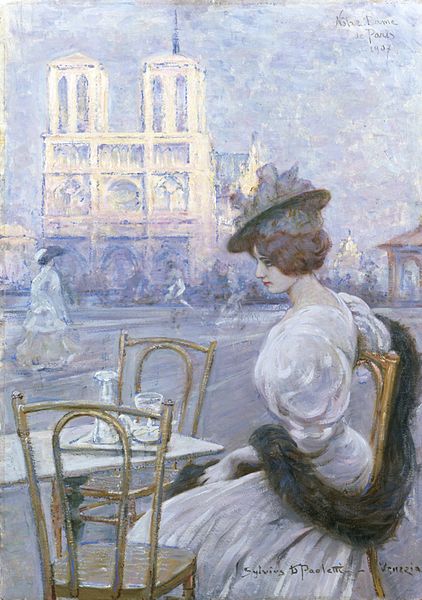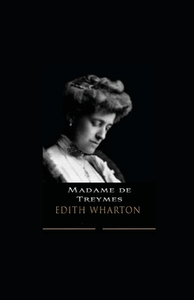Take a photo of a barcode or cover
emotional
reflective
medium-paced
Plot or Character Driven:
Plot
Strong character development:
Yes
Loveable characters:
No
Diverse cast of characters:
Complicated
Flaws of characters a main focus:
No
emotional
reflective
fast-paced
Reading Edith Wharton is analogous to seeing a really bad car wreck. You know it's going to end in some form of tragedy, but you just can't stop looking.
lighthearted
reflective
fast-paced
Plot or Character Driven:
Plot
Strong character development:
No
Loveable characters:
No
Diverse cast of characters:
No
Flaws of characters a main focus:
No
Although I like the way Warthon writes, treating the reader as a wise being, (just like her work) and that she captures the French and American society of that time very well, I find it quite bad that Durham and Fanny never gives you a reason to be interested in them.
There's no romance, no spinning, no interesting yearning. They don't really interact a lot. It seems to me that Fanny was just a whim, and perhaps the book was just a small sketch of something that the author wanted to develop further. The last third of the book felt very hard and heavy for me.
There's no romance, no spinning, no interesting yearning. They don't really interact a lot. It seems to me that Fanny was just a whim, and perhaps the book was just a small sketch of something that the author wanted to develop further. The last third of the book felt very hard and heavy for me.
A FEMME FATALE OR A 'POOR, GOOD WOMAN'?
Dear potential readers,
To promote social distancing in the time of the pandemic, you are kindly requested to split into three groups. Please, follow accordingly.
FIRST TIMERS ONLY
If you are planning to endeavour Edith Wharton’s books and wonder where to begin, ‘Madame de Treymens’ (1907) is not the best place to start your journey.
While reading this novella, I had a feeling that it was just a sketch for something more profound, which could have been developed further but sadly was not. As if Wharton had to finish it in haste. Maybe that is why she didn’t have a chance to spread her wings? As a result, something substantial is missing.
You will be deluded if you want to be guided by the hand and given all explanations. Edith Wharton expects you to read between the lines. She has also a tendency to turn the world, which you have been laboriously building from her words, upside down with one unexpected blow. Sometimes it hurts.

Sylvius Paoletti, ’Notre Dame de Paris’, 1907.
IF YOU LIKE EDITH WHARTON’S BOOKS…
I belong to this group wholeheartedly.
‘Madame de Treymens’ will provide you with all the things you probably adore about Wharton’s novels. I love the way Henry James pinpointed her forte: 'admirable sharpness & neatness & infinite wit & point'. Touché!
As usual, Edith Wharton is an astute chronicler of social changes She concentrates on two main problems this time: the contrast between the values of the French aristocrats and Americans and the position of a woman, with dramatically limited life choices.
If you crave for Wharton’s irony, lined with a melange of melancholy and tartness, your need will be fully satisfied. Besides, you will probably enjoy a literary trip to Paris which never disappoints.
Wharton, a subtle and compassionate observer, leaves us with lingering questions. For instance, was Christiane de Treymes a manipulative egotist or a sensitive, troubled person, 'poor good woman', as John called her? And what was the real nature of Durham’s interest in the mysterious saviour?

Rue de Rivoli, Paris, 1907.
IF YOU DON’T LIKE EDITH WHARTON’S BOOKS…
Sorry to admit but this novel may equip you with some arguments against Edith Wharton. As for the characters, enigmatic Madame de Treymens is a person to remember but I am afraid all the others will move out from your memory hurriedly, leaving no traces.
The structure of this book is a mystery also – was this novella and short story hybrid, bursting with loose ends and open questions, an experiment or accidental fiasco? Was it a foundation of a novel, abandoned for some reason?
And the Jamesian spirit all over the place… At first, I loved the way ‘Madame de Treymens’ resembled Henry James’ style but after a while, I found it a bit awkward, no matter how conscious or unconscious this influence was. It felt as if Edith Wharton was losing her own voice, imitating the Master.
And yet another problem I had with ‘Madame de Treymens’. One of my pet peeves is national stereotypes. I simply detest them. The way Wharton depicted a vast difference between the perfidious, demoralized French and the ingenuous, sincere Americans, the old and the new world, irritated me, as I am allergic to this sort of generalizations.
Anti-fans of Edith Wharton, you win this time. But please, do not feel overly triumphant, as revenge is near. I am planning to read ‘The House of Mirth’ soon and this can be a game changer.

Illustration from the first edition of ‘Madame de Treymens’, 1907.
Dear potential readers,
To promote social distancing in the time of the pandemic, you are kindly requested to split into three groups. Please, follow accordingly.
FIRST TIMERS ONLY
If you are planning to endeavour Edith Wharton’s books and wonder where to begin, ‘Madame de Treymens’ (1907) is not the best place to start your journey.
While reading this novella, I had a feeling that it was just a sketch for something more profound, which could have been developed further but sadly was not. As if Wharton had to finish it in haste. Maybe that is why she didn’t have a chance to spread her wings? As a result, something substantial is missing.
You will be deluded if you want to be guided by the hand and given all explanations. Edith Wharton expects you to read between the lines. She has also a tendency to turn the world, which you have been laboriously building from her words, upside down with one unexpected blow. Sometimes it hurts.

Sylvius Paoletti, ’Notre Dame de Paris’, 1907.
IF YOU LIKE EDITH WHARTON’S BOOKS…
I belong to this group wholeheartedly.
‘Madame de Treymens’ will provide you with all the things you probably adore about Wharton’s novels. I love the way Henry James pinpointed her forte: 'admirable sharpness & neatness & infinite wit & point'. Touché!
As usual, Edith Wharton is an astute chronicler of social changes She concentrates on two main problems this time: the contrast between the values of the French aristocrats and Americans and the position of a woman, with dramatically limited life choices.
If you crave for Wharton’s irony, lined with a melange of melancholy and tartness, your need will be fully satisfied. Besides, you will probably enjoy a literary trip to Paris which never disappoints.
Wharton, a subtle and compassionate observer, leaves us with lingering questions. For instance, was Christiane de Treymes a manipulative egotist or a sensitive, troubled person, 'poor good woman', as John called her? And what was the real nature of Durham’s interest in the mysterious saviour?
Rue de Rivoli, Paris, 1907.
IF YOU DON’T LIKE EDITH WHARTON’S BOOKS…
Sorry to admit but this novel may equip you with some arguments against Edith Wharton. As for the characters, enigmatic Madame de Treymens is a person to remember but I am afraid all the others will move out from your memory hurriedly, leaving no traces.
The structure of this book is a mystery also – was this novella and short story hybrid, bursting with loose ends and open questions, an experiment or accidental fiasco? Was it a foundation of a novel, abandoned for some reason?
And the Jamesian spirit all over the place… At first, I loved the way ‘Madame de Treymens’ resembled Henry James’ style but after a while, I found it a bit awkward, no matter how conscious or unconscious this influence was. It felt as if Edith Wharton was losing her own voice, imitating the Master.
And yet another problem I had with ‘Madame de Treymens’. One of my pet peeves is national stereotypes. I simply detest them. The way Wharton depicted a vast difference between the perfidious, demoralized French and the ingenuous, sincere Americans, the old and the new world, irritated me, as I am allergic to this sort of generalizations.
Anti-fans of Edith Wharton, you win this time. But please, do not feel overly triumphant, as revenge is near. I am planning to read ‘The House of Mirth’ soon and this can be a game changer.
Illustration from the first edition of ‘Madame de Treymens’, 1907.
medium-paced
sad
fast-paced
Plot or Character Driven:
Character
Strong character development:
No
Loveable characters:
Yes
Diverse cast of characters:
No
Flaws of characters a main focus:
Yes
In this novella, an American gentlemen, Durham, living in Paris with his family, desires to marry childhood sweetheart, Fanny, but she is still married to her French Aristocrat and needs to divorce him. The problem she also is trying to gain full custody of their son and French law is different. Durham and Fanny's only help is her sister in-law, Madame de Treymes, who hates her brother.
This is my second Wharton that I have read, the other being Ethan Frome, and I liked this one better. Ethan Frome is in the collection I read this story from and I might read it again to see if I feel differently while reading it of my own accord. The writing is beautiful and I was intrigued, not bored by this story. It provides a simple look at the differences between the American culture and French culture, focusing most on the French culture, through marriage laws. I liked Durham and Fanny, but I wanted to know more about the title character Madame de Treymes.
This is my second Wharton that I have read, the other being Ethan Frome, and I liked this one better. Ethan Frome is in the collection I read this story from and I might read it again to see if I feel differently while reading it of my own accord. The writing is beautiful and I was intrigued, not bored by this story. It provides a simple look at the differences between the American culture and French culture, focusing most on the French culture, through marriage laws. I liked Durham and Fanny, but I wanted to know more about the title character Madame de Treymes.
"Perhaps not in your fortunate country, where she may seek liberation without dishonour. But here—! You who have seen the consequences of our disastrous marriages—you who may yet be the victim of our cruel and abominable system; have you no pity for one who has suffered in the same way, and without the possibility of release?"
What a good surprise this novella was! I am not lying if I say that I don't remember the last time I read a novel by Edith Wharton. Maybe last year, when I read Ethan Frome, another big surprise to say the least.
Now, when I picked up Madame de Treymes, I must confess that my expectations were not too high, in fact, I thought the story might be good, but not so meaningful as it turned out to be.
Speaking of the story, it is beautifully written, Wharton's narrative is quite fascinating and remarkable since she knows how to describe her characters and to develop a complex plot in just a few pages like in this short novel. I would like to point out that her dialogues, at least in this case, are one of the most important elements so that the author can portray the personality of each character, and why they made this or that decision.
This novella is basically a portrait of two different societies, and therefore, two different ways to see the life. On one hand, we have the simplicity and freedom which were common in the new world, whereas, on the other hand, we have the typical, traditional family with their strict customs and norms in the old world, for instance, how they see the possibility of divorce.
In addition, Madame de Treymes reminded me of a Henry James novel, and it was not just the fact that its protagonist, John Durham, is an American visiting France (Europe), but also the fact that we can appreciate this contrast between American and French societies, and how the main conflict in the novel, it is indeed a conflict due to the different principles and ideologies between these two places.
Madame de Treymes was absolutely my favorite character in the story, not only because some of her ideas/thoughts might be against her own society, but also because how everything around this character ended up being different at the end of the book. That ending was marvelous, even though at first sight you cannot understand why she did what she did, eventually all make sense when you think consciously about it. It all comes down to one question: "why did she deceive him?" (The less I explain what I want to say here, the better).
In short, Madame de Treymes is a good option to start or to continue reading Wharton's works, and of course, I highly recommend it.
----
P.S. My GR friends: I would like to say that my reviews from now on are not going to be exactly the same – I will try to be more precise and short in my words. Since I'm not feeling really inspired ultimately, and I'm not living the best stage of my life (in fact, right now I'm getting through a familiar situation), somehow I can't find the right way to express my ideas clearly; for instance, the last three reviews (this one included) were difficult for me to write, and perhaps it is because of my lack of inspiration at the moment. In the end I think a change in the way you usually do something may be really good.
I'm not leaving GR though; on the contrary, as always I will be reading your wonderful reviews and leaving my comments on them. Thanks and see you soon! :)
What a good surprise this novella was! I am not lying if I say that I don't remember the last time I read a novel by Edith Wharton. Maybe last year, when I read Ethan Frome, another big surprise to say the least.
Now, when I picked up Madame de Treymes, I must confess that my expectations were not too high, in fact, I thought the story might be good, but not so meaningful as it turned out to be.
Speaking of the story, it is beautifully written, Wharton's narrative is quite fascinating and remarkable since she knows how to describe her characters and to develop a complex plot in just a few pages like in this short novel. I would like to point out that her dialogues, at least in this case, are one of the most important elements so that the author can portray the personality of each character, and why they made this or that decision.
This novella is basically a portrait of two different societies, and therefore, two different ways to see the life. On one hand, we have the simplicity and freedom which were common in the new world, whereas, on the other hand, we have the typical, traditional family with their strict customs and norms in the old world, for instance, how they see the possibility of divorce.
In addition, Madame de Treymes reminded me of a Henry James novel, and it was not just the fact that its protagonist, John Durham, is an American visiting France (Europe), but also the fact that we can appreciate this contrast between American and French societies, and how the main conflict in the novel, it is indeed a conflict due to the different principles and ideologies between these two places.
Madame de Treymes was absolutely my favorite character in the story, not only because some of her ideas/thoughts might be against her own society, but also because how everything around this character ended up being different at the end of the book. That ending was marvelous, even though at first sight you cannot understand why she did what she did, eventually all make sense when you think consciously about it. It all comes down to one question: "why did she deceive him?" (The less I explain what I want to say here, the better).
In short, Madame de Treymes is a good option to start or to continue reading Wharton's works, and of course, I highly recommend it.
----
P.S. My GR friends: I would like to say that my reviews from now on are not going to be exactly the same – I will try to be more precise and short in my words. Since I'm not feeling really inspired ultimately, and I'm not living the best stage of my life (in fact, right now I'm getting through a familiar situation), somehow I can't find the right way to express my ideas clearly; for instance, the last three reviews (this one included) were difficult for me to write, and perhaps it is because of my lack of inspiration at the moment. In the end I think a change in the way you usually do something may be really good.
I'm not leaving GR though; on the contrary, as always I will be reading your wonderful reviews and leaving my comments on them. Thanks and see you soon! :)






